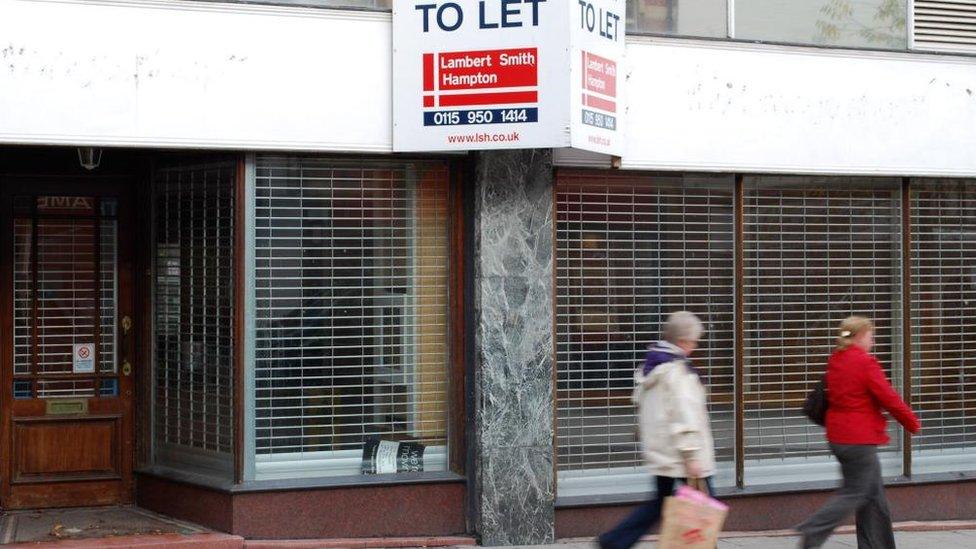Empty homes: A solution to record homelessness?
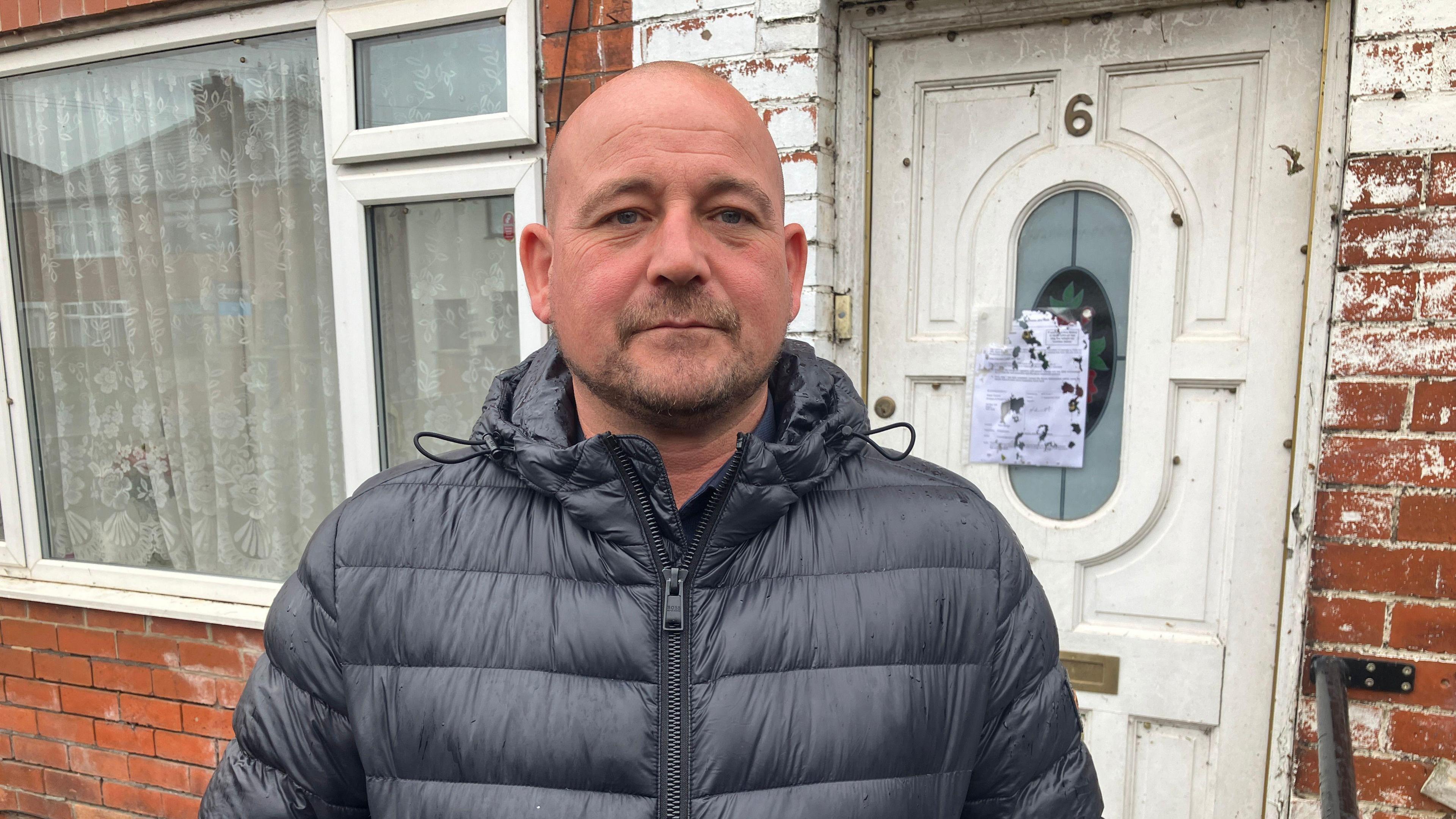
Empty homes are a waste of a much-needed resource but can also be a magnet for anti-social behaviour, says Neil Tonge
- Published
A housing standards boss is leading trailblazing work turning empty houses in his area into homes for people who desperately need them.
The number of homes empty for at least six months in Wigan has fallen by nearly 200 in the past year, from 1,286 to 1,093. It bucks a national trend that saw the number of empty homes rise on average by 5% over the same period, according to data from the Department for Levelling Up, Housing and Communities, external.
There are now more than 260,000 long-term empty homes in England. At the same time, there are nearly 113,000 homeless families or single adults in temporary accommodation - the highest number on record.
Neil Tonge, from Wigan Council, said he was getting "frustrated" homes were lying empty when so many people do not have one. He said that was "one of the key reasons" he hunts down the owners of empty properties and works to get them back into use for families who need them.
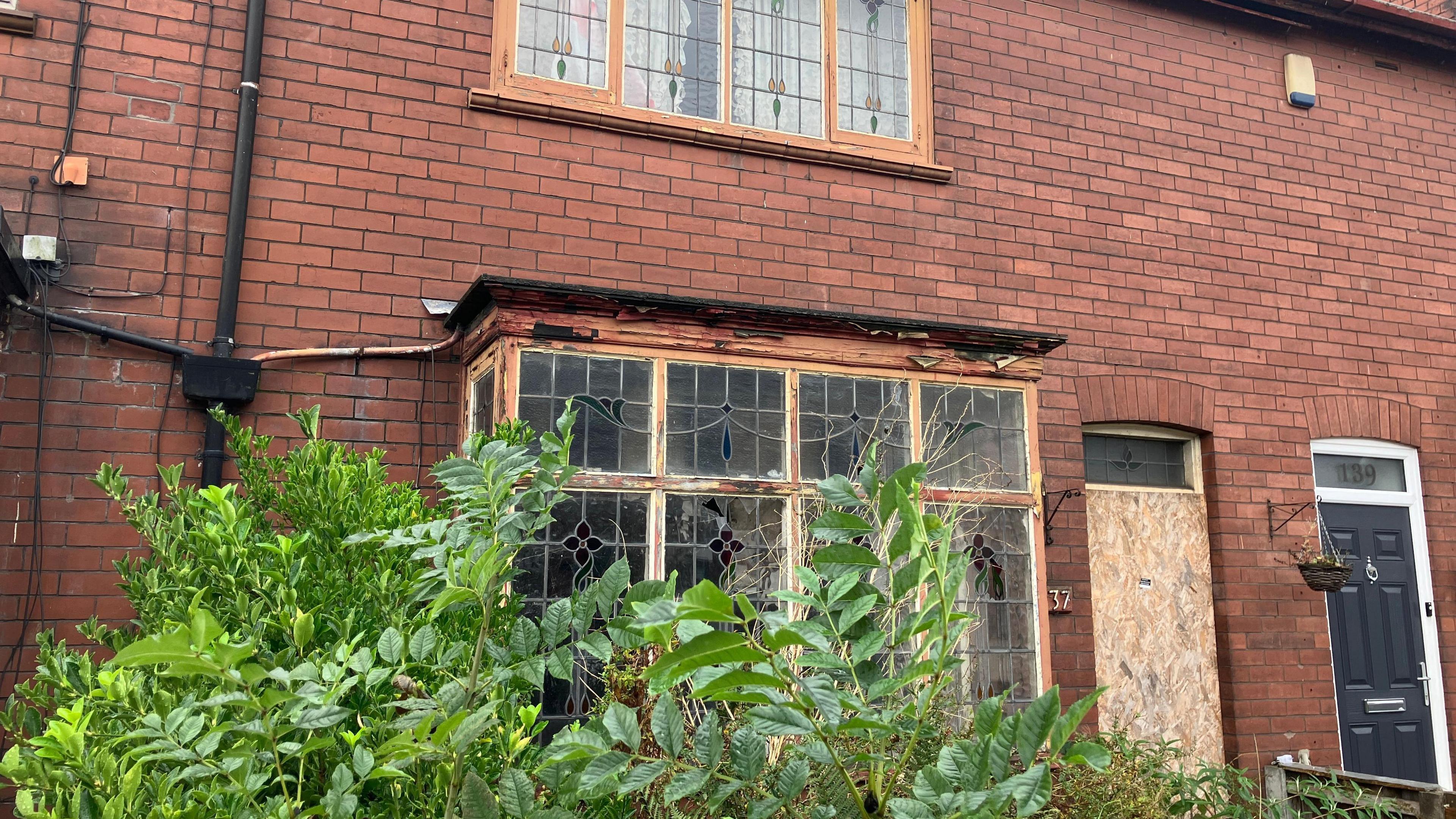
Some youths use empty homes as a den, Neil Tonge says
As a former police officer and electrician, Mr Tonge said his current role as housing standards manager draws on his experience of "dealing with people in difficult situations", as well as his knowledge of buildings and construction.
Not all empty homes are in areas where there is high demand, but many are in and around cities, where there are high rates of homelessness.
Lisa became homeless when she was evicted by her landlord, who had decided to sell up. Along with her daughter, they were placed in a flat in Bolton and joined the record numbers of homeless families living in limbo, stuck in often-unsuitable temporary accommodation.
"I was terrified," she said. "I just feel like you want to do everything to protect your child. And then when you have nowhere to live, it's horrible. It really is horrible."
'Magnet for anti-social behaviour'
Mr Tonge said empty homes were not only a waste of much-needed resource, but could also be a problem in themselves.
"We've had fires. We've had drug users getting in there," he said, pointing out a boarded-up house at the end of a Victorian terrace.
"Some of the kids were breaking in there and using it as a den and it just becomes a magnet for anti-social behaviour."
The owner of the house bought it as an investment and planned to do it up, but ran into financial problems, he said.
It can take weeks of labour-intensive work to hunt down owners who live elsewhere in the country or abroad.
LISTEN: Ghost Houses File on 4 on BBC Radio 4 at 20:00 BST on Tuesday or on BBC Sounds
The team at Wigan Council sometimes use specialist genealogist companies to search birth, death, and marriage certificates and trace family trees.
Sometimes, feuds within families mean houses sit unused long after an owner has died, because one relative does not want another to benefit from a sale.
"You find yourself getting involved in family disputes," he said. "And they're not afraid to tell you the issues either."
Mr Tonge has also recently found a problem with supposedly-occupied houses actually being used as cannabis farms.
"It’s becoming a lot more common than you would think," he said.
Homes again
Getting empty homes back into use means dealing with the unique circumstances of each case.
Local authorities can use a Compulsory Purchase Order to buy a property without the owner's permission as a last resort.
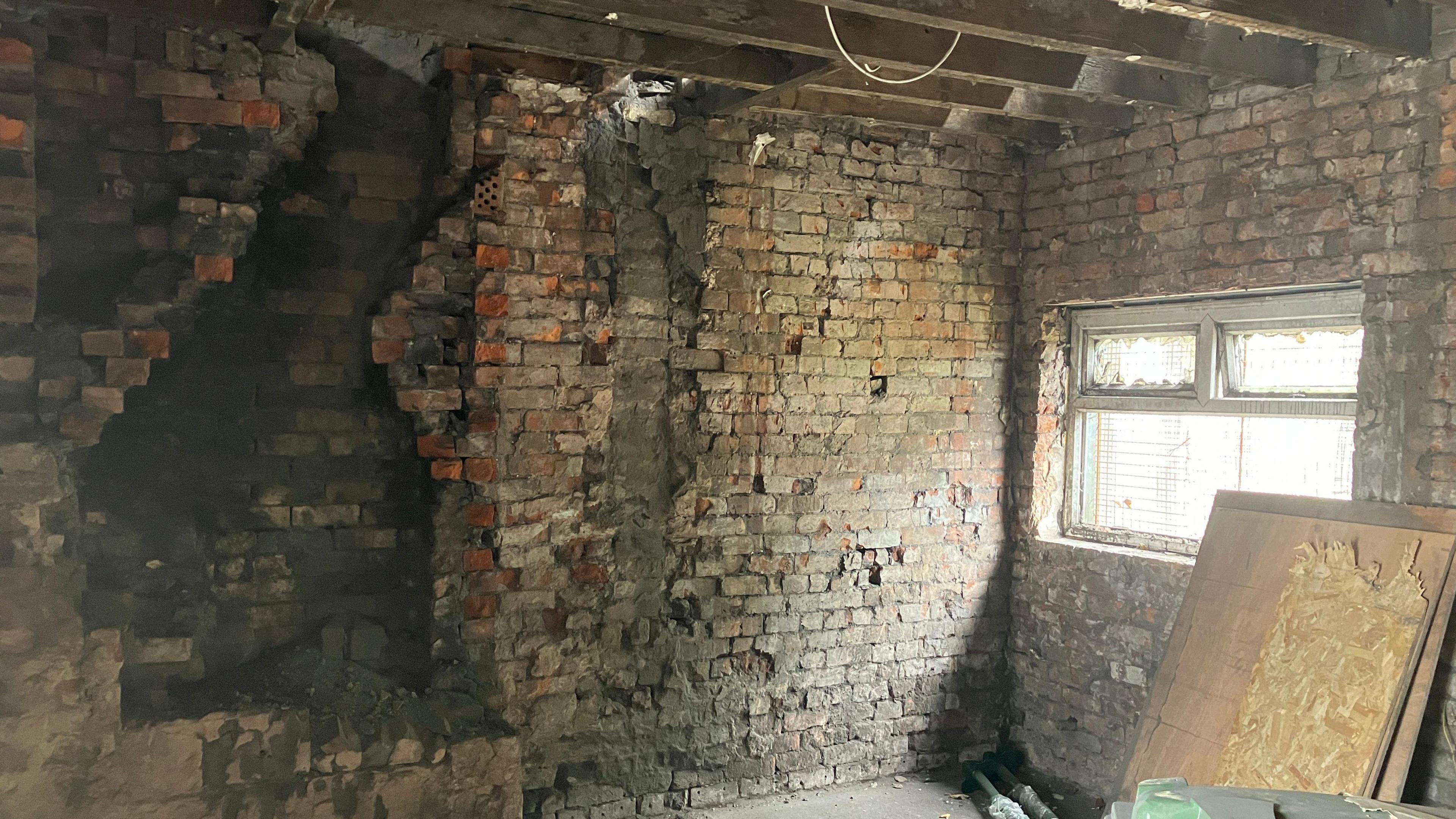
Mr Tonge works with other council departments, the police, local developers, and charities to try to turn empty houses back into homes
Mr Tonge said the prospect of compulsory purchase can push owners into action, but that generally he and his colleagues try to engage with owners constructively.
He uses his tenacious networking skills to work with other council departments, the police, local developers and charities to try to turn empty houses back into homes for people who need them most.
After eight years of being empty, the boarded-up property that had become a magnet for anti-social behaviour has now been bought by a developer and is being extended and converted into six one-bedroom flats.
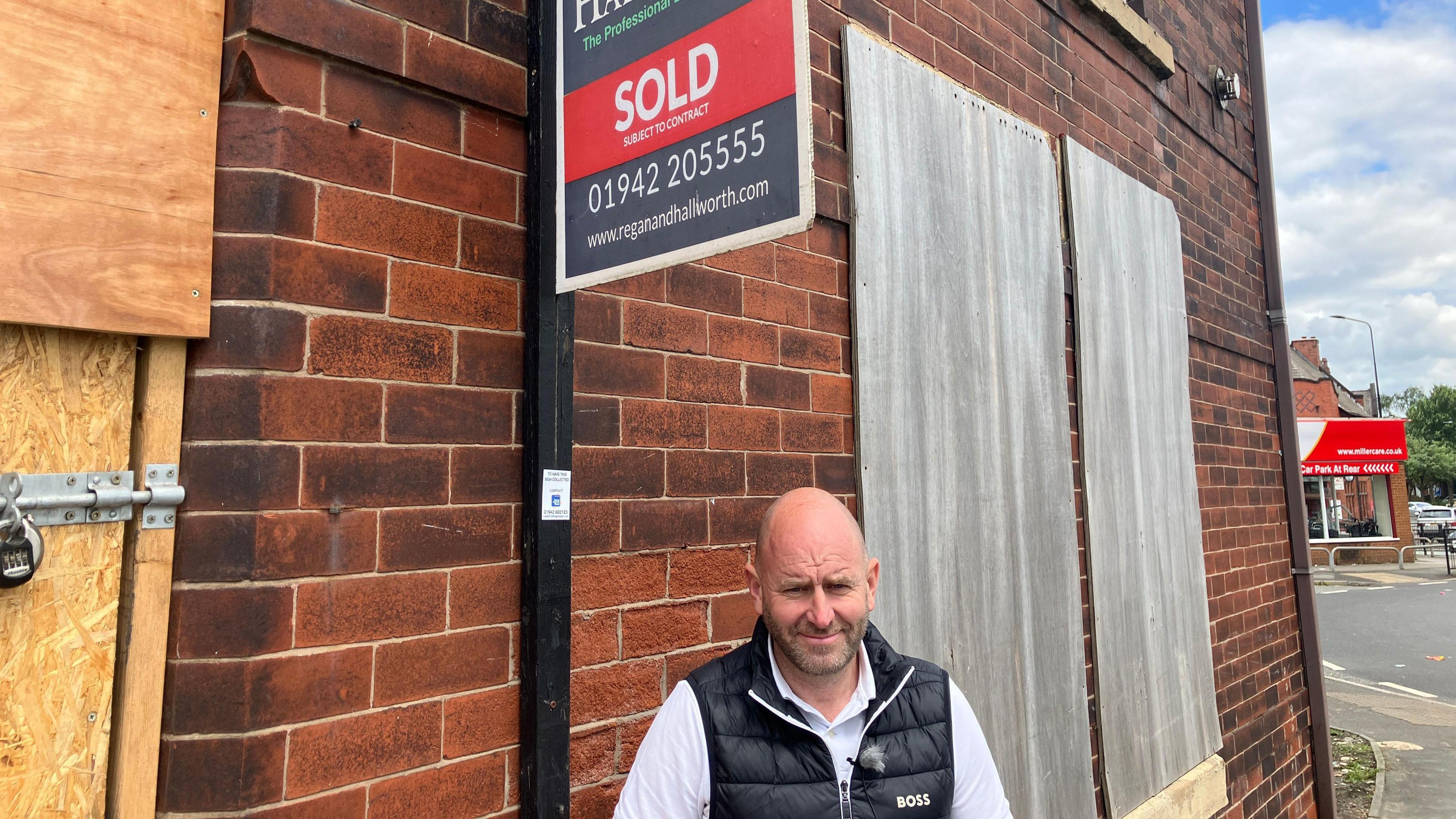
Developer Andy Lyon, of Winstanley Property, is converting the once empty home which was a magnet for anti-social behaviour into flats
Developer Andy Lyon, of Winstanley Property, hopes it will be used for care leavers, who are at risk of homelessness.
"I live in Wigan, have done all my life," Mr Lyon said. "And it kind of upsets me that every single street I go down, there's an empty property or a property that's under disrepair or whatever."
He said he wanted these new homes to be used for care leavers because his son has special needs and "I would like to think that if we weren't around, my son would get help".
Mr Lyon added: "As long as it provides homes for people who need it then our job is done, right?"
Listen to the best of BBC Radio Manchester on Sounds and follow BBC Manchester on Facebook, external, X, external and Instagram, external. You can also send story ideas to northwest.newsonline@bbc.co.uk, external
Related topics
- Published20 May 2024
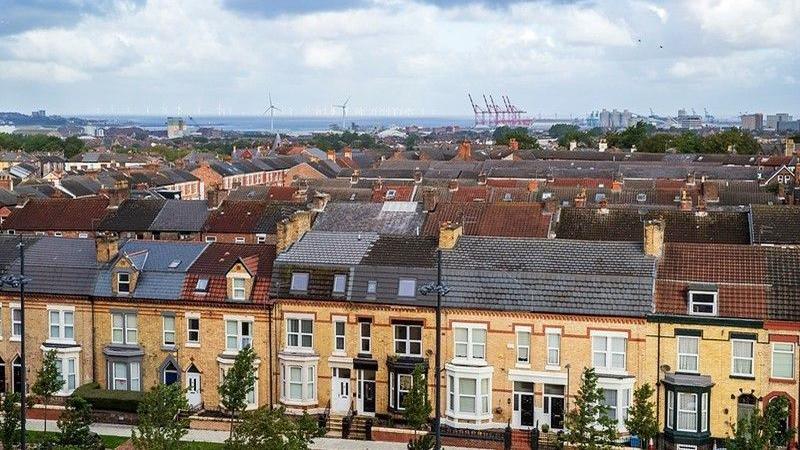
- Published14 February 2024
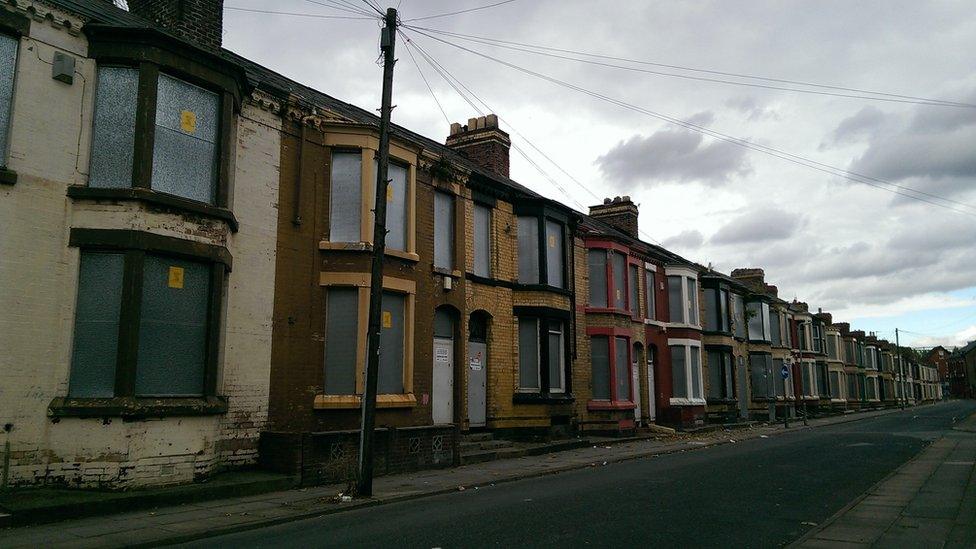
- Published27 October 2023
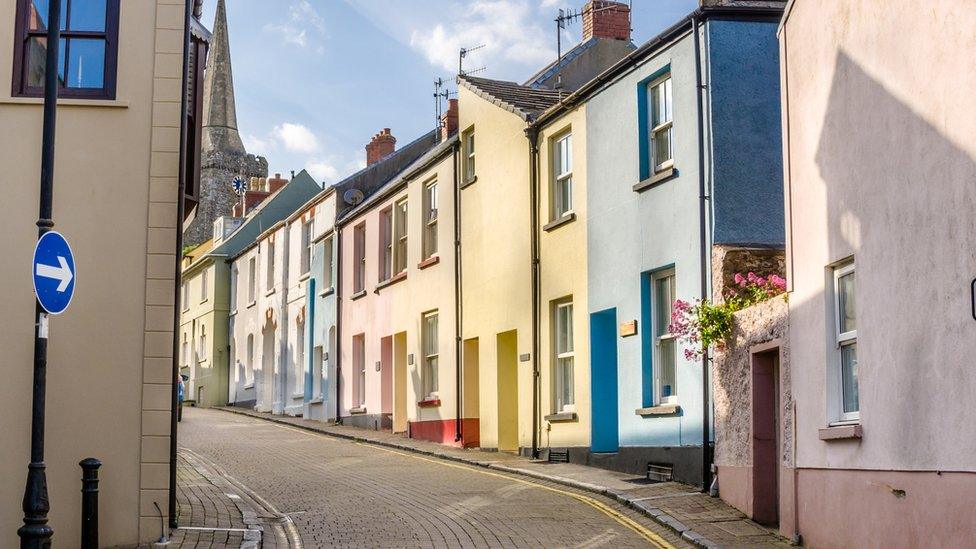
- Published16 January 2024
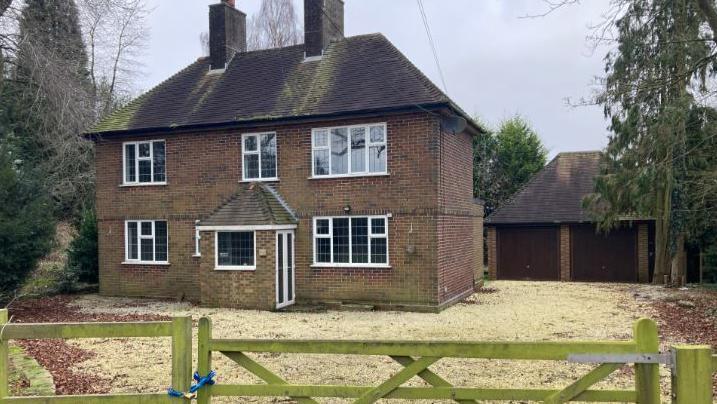
- Published11 February 2024
